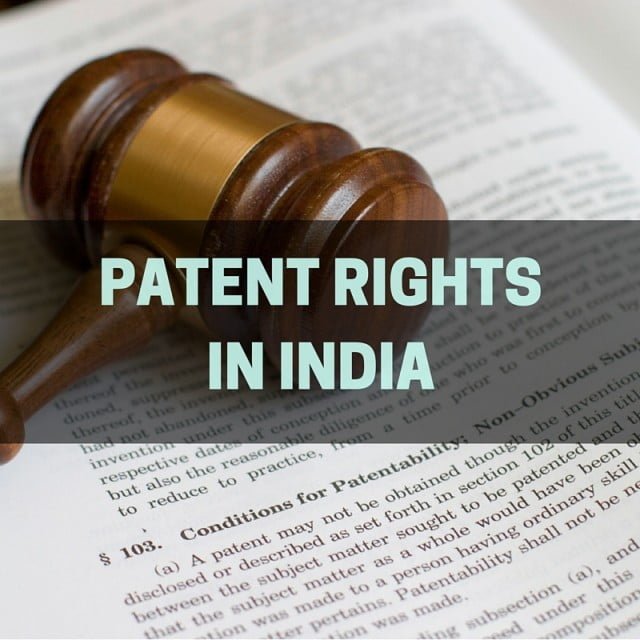Know the Rights of a Patentee: Patent is one of the most Significant right which ensures that your Intellectual property is Protected. If the invention of a product is unique then the patent makes sure to preserve the uniqueness of the product. The owner with a granted Patent can enjoy the absolute right to distribute, make, sell the article of their product.
For the Web-Story of this Article “Click Here".
What is Intellectual Property Right?
The term “intellectual property rights” (IPR) refers to the legal privileges granted to the inventor or creator to safeguard their work for a predetermined amount of time. These legal rights allow the inventor or creator, or his assignee, the only right to fully exploit their idea or creativity for a specific amount of time.

What is a Patent?
An invention is a product or a technique that, in general, offers a new way of doing something or presents a new technical solution to a problem. A patent is an exclusive right awarded for an invention. Technical details concerning the innovation must be made public in a patent application in order to obtain one.
According to the Patent Act of 1970, the owner of an invention must have it patented. Certain rights are granted to the patentee upon registration of the patent, and these rights must be upheld by the patentee.

Along with the rights come some limitations or requirements that the patentee must adhere to. As a result, the Patent Act of 1970 sets forth certain rights and obligations of the patentee that must be upheld. In order for the patentee to comply with the requirements of the Patent Act, 1970, the Controller of Patents also grants various Rights and Obligations of Patentee.
The Rights and Obligations of the Patentee under the Patents Act, 1970.
Validity of a Patent:-
A Patent is valid for a duration of 20 years. The patent’s lifespan cannot be extended in any way. When a patent’s protection period is up, the invention loses its exclusivity and enters the public domain. This indicates that the invention is freely usable by anybody without fear of legal action for patent infringement.
The patent holder must routinely renew their patent right in accordance with Section 53, Rule 80 of the Indian Patents Act, 1970. This will guarantee that the patent is valid for the entire duration of the grant. As a result, you must renew your patent each year by paying a nominal charge.
Who is a patentee?
A patentee is a person who is listed in the patent register as the current grantee or proprietor of a patent. The term “Patentee” refers to the individual to whom the patent has been granted.

The patentee has the same rights to exploit the asset or invention as the owner of any movable property.
Rights of a Patentee:-
Sections 48 to 50[4] of the Patent Act of 1970 contain stipulations on the Patentee’s rights which are as follows:-
- Because the patent is for a product, it gives the patentee the only authority to stop other parties from manufacturing, using, offering for sale, selling, or importing the product into India for those purposes without the patentee’s permission.
- A method is the subject of a patent, giving the patentee the exclusive right to stop third parties from using, offering for sale, selling, or importing the process for those purposes without the patentee’s approval.
The following are the detailed patentee rights in India:

1. Right To Exploit The Patent
When the new invention is a product, the Patentee has the only right to use, manufacture, import, or sell it in India for certain connected uses.
The right to exploit, on the other hand, refers to the sole right to employ the procedure or method inside the boundaries of India where the inventor’s invention is a method or process for producing any good or material.
2. Right To Grant License
A patent gives the patentee the ability to enter into agreements, transfer rights, or grant licences in exchange for money. To be valid and genuine, the assignment or licence must be made in writing and recorded with the Controller of Patents.
This regulation only applies to the assignee, not the assignor, and it states that a patent assignment document cannot be admitted as proof of a patent’s ownership if it is not registered. (According to the Patent Act of 1970, Section 69(5))
3. Right to surrender
The Patentee of a Patent has the right to surrender a Patent at any time and for any reason by giving notification in the way specified. The Journal must publish the advertisement for such a surrender offer. The publishing is carried out to give the public a chance to object to the Patentee’s offer of surrender. This is done when the Patentee decides to give up the Patent after realising that they will not be performing under the Patent in the future.
4. Right To Sue For Infringement
The Patentee has the legal right to file a lawsuit for patent infringement before a district court, which has jurisdiction to hear the case.
5. Right To Use And Enjoy Patent
The Patentee of the Patent has the sole authority to exercise, create, use, convey, or provide the patented substance or object in India, as well as to use any associated processes or techniques. The Patentee, as well as any of his or her licensees or agents, may exercise these rights.